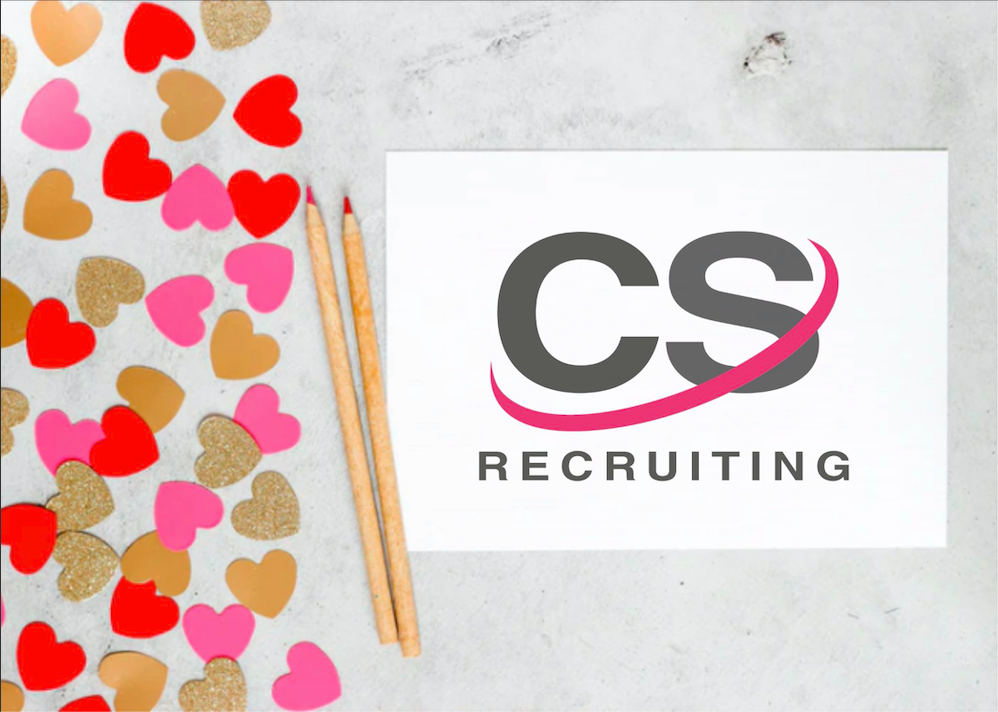How Do You Know When A Candidate Is The One?
Valentine’s Day is nearly upon us, meaning more boxed chocolates, stuffed bears, and red roses will be loaded into vans and trucks, airplanes, and rail cars to be sent to loved ones for prompt delivery. This Hallmark holiday celebrating soulmates, while most known for romantic dinners and heart-shaped candy, is the perfect time for employers and job seekers alike to determine their perfect match.
The primary objectives of hiring are to fill an open role with the most qualified candidate, within your desired timeframe, while using the least amount of resources. Recruiting professionals will say the search for an ideal candidate should be a patient process in order to find “the one.” Much like relationships, employees want a long-term partner.
How do top hiring managers and talent agencies seem to always know who “the one” is for their company? They hire those candidates who check all of the required boxes (and sometimes more), make sure they don’t raise any red flags, and get the impression they will fit in with the company’s culture. It sounds like a lot to tackle and it will take work to find the perfect match, but definitely not impossible.
Here are some tips and tricks the most successful hiring teams use to ensure they’re welcoming a capable and soon-to-be indispensable member to their company’s workforce for years to come:
1. The Candidate Did Their Homework
Like in school, the students who usually excel are those who have the most knowledge of the subject, study seriously in preparation of the exam, and review for complete confidence. The same is true for job interviews; prepared interviewees who have made an apparent effort to learn and express excitement for the company’s product, mission, and culture should be considered into the next phase.
Employees who researched their new potential employee before initially meeting expressed interest in the organization, and demonstrated their knowledge during the interview stayed with their employers for 30 percent longer than those who didn’t prepare at all. It’s worth looking for an informed candidate to reduce turnover, which gets expensive, but also because it demoralizes other employees which can have several negative effects on the overall organization.
2. The Interview Flows Like a Conversation
Interviews are a give-and-take interaction. Most candidates will be asked at some point during the interview if they have any questions for the interviewer. The questions they ask are just as important and telling as the answers they give. Questions will show that they understand the role and company enough to ask appropriate, thought-provoking questions, highlighting research done on the organization and the level of knowledge of products and service.
If the interview is full of uncomfortable silences, too many “likes, ums, or I don’t know’s,” or the candidate is not pleasant, it would be best to evaluate if this person had other qualifications that make them a desirable hire. On the opposite spectrum, if the interview between the hiring manager and candidate goes well, a company could use this as an indication of how they will get along with employees and their effect on company morale.
3. The Hiring Manager and Candidate Have Similar Ethics and Mindsets
Similar to romantic relationships, making sure two parties are on the same page is crucial to healthy decision-making and more productivity over time. An employee who shares the goals of their employer is more likely to contribute quality work and genuinely care about the future of the organization.
During interviews and while composing resumes, some candidates will, unfortunately, exaggerate their experience and qualifications to make themselves seem like a better fit than they actually are. While employee verifications, background checks, and references exist, it’s harder to judge someone’s personality and honesty from meeting them a few times for a short period of time.
4. Candidates Pass Tests Hiring Managers Require
By requiring candidates to take talent assessment tests, personality tests, and emotional intelligence tests, employers can obtain objective results which could uncover strengths or weaknesses relevant to the requirements of the position the candidate is being considered for.
Companies who use pre-employment tests experience a much lower turnover rate from their employees and a possible increase in the speed of the hiring, without forfeiting any quality candidates. The tests work as filters and reduce the number of irrelevant profiles to be reviewed significantly, thus letting hiring managers focus more time on the candidates who have the necessary requirements.
5. Candidates Don’t Raise Any Red Flags
As many reasons as there are to feel confident about hiring a candidate, there are equal, if not more reasons to be wary of certain contenders. The candidate’s answers or mistakes can raise red flags at times, such as resume mistakes or bashing previous employers. Seasoned hiring managers have a few ways to get a better read on a candidate than traditional interview questions and techniques. Hiring managers will dive into the candidate’s past experience and understand their reasoning for leaving a previous position and why they are looking for a new role.
Much like relationships, determining who “the one” is takes effort from both hiring managers and candidates. Love at first sight in business is determined during the interview process. After the interview process comes the happily ever after; a long-tenured professional, relationship.
